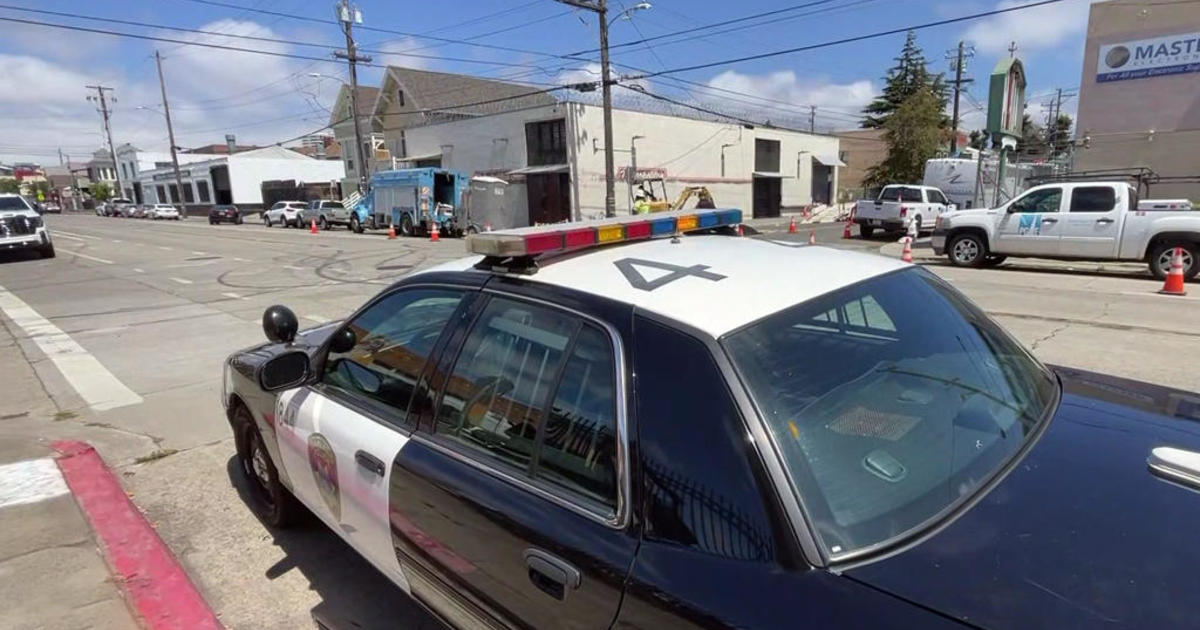UC Berkeley Research Leads To Nobel Prize For Medicine
BERKELEY (CBS SF/AP) -- A former UC Berkeley cancer researcher has been awarded the 2018 Nobel Prize in Physiology or Medicine for his groundbreaking work that began on the Berkeley campus and continued when he moved on to University of Texas MD Anderson Cancer Center.
James Allison, Who for 20 years was a UC Berkeley immunologist conducting fundamental research on cancer, shared the prestigious prize on Monday with Tasuku Honjo of Kyoto University in Japan.
The men were awarded the prize "for their discovery of cancer therapy by inhibition of negative immune regulation."
The 70-year-old Allison's groundbreaking research centered on T-cells and the ability to adapt their disease fighting tendencies to target cancer cells in the body.
According to UC Berkeley, the monoclonal antibody therapy Allison pioneered was approved by the Food and Drug Administration in 2011 to treat malignant melanoma and spawned several related therapies now being used against lung, prostate and other cancers.
"Targeted therapies don't cure cancer, but immunotherapy is curative, which is why many consider it the biggest advance in a generation," Allison said in a 2015 interview. "Clearly, immunotherapy now has taken its place along with surgery, chemotherapy and radiation as a reliable and objective way to treat cancer."
"I'm honored and humbled to receive this prestigious recognition," Allison said in a statement released by M.D. Anderson. "A driving motivation for scientists is simply to push the frontiers of knowledge. I didn't set out to study cancer, but to understand the biology of T cells, these incredible cells that travel our bodies and work to protect us."
The discoveries by Allison and Honjo, 76, "absolutely paved the way for a new approach to cancer treatment," Dr. Jedd Wolchok, chief of the melanoma and immunotherapeutics service at the Memorial Sloan Kettering Cancer Center in New York, told The Associated Press.
He said the idea of releasing the brakes on immune system cells has led to drugs for the skin cancer melanoma and for cancers of the lung, head and neck, bladder, kidney and liver. Just last week, such a drug was approved for treatment of another kind of skin cancer called squamous cell cancer, he said.
Wolchok said "an untold number of lives ... have been saved by the science that they pioneered."
The approach to cancer treatment that was honored with this year's Nobel was used to treat former U.S. President Jimmy Carter, who was diagnosed in 2015 with melanoma, which had spread to his brain.
One of Carter's treatments was a drug that blocked the immune-cell "brake" studied by Honjo. Carter announced in 2016 that he no longer needed treatment.
Although the concept of using the immune system against cancer arose in the 19th century, initial treatments based on the approach were only modestly effective.
"Everybody wanted to do chemotherapy and radiation. The immune system was neglected because there was no strong evidence it could be effective," said Nadia Guerra, head of a cancer laboratory at Imperial College London.
Allison's work, much of it done at the University of California-Berkley, changed that by proving the immune system could identify tumor cells and act against them.
"It's like your body uses your own army to fight cancer," she said.
At news conference later Monday in Kyoto, Honjo said what makes him most delighted is when he hears from patients who have recovered from serious illnesses because of his research.
Honjo, an avid golf player, said a member of a golf club once walked up to him suddenly, thanking him for the discovery that treated his lung cancer.
"He told me, 'Thanks to you I can play golf again.' ...That was a blissful moment. A comment like that makes me happier than any prize," he said.
The American Cancer Society's chief medical officer says he and colleagues gave a celebratory toast to Allison at a party on Friday — days before the announcement of the Nobel Prize in Medicine — because they agreed this could be his year.
Dr. Otis W. Brawley, a close friend of Allison's, said the Nobel committee usually waits about ten years to make sure a scientific discovery "sticks as being really important."
He said Allison's work a decade ago "really opened up immunotherapy" as a fifth pillar of cancer treatments, after surgery, radiation, chemotherapy and precision therapy.
"The discovery of Jim Allison led to the first drug that routinely caused patients with a metastatic disease — melanoma — - to go into complete remission," he said.
Allison's drug, known commercially as Yervoy, became the first to extend the survival of patients with late-stage melanoma. In a statement Monday, he urged more support for basic science research.
Allison said scientists need to better understand "how these drugs work and how they might best be combined with other therapies to improve treatment and reduce unwanted side effects. We need more basic science research to do that."
"It's a great emotional privilege to meet cancer patients who've been successfully treated with immune checkpoint blockade. They are living proof of the power of basic science," he added.
© Copyright 2018 CBS Broadcasting Inc. All Rights Reserved. The Associated Press contributed to this report.



